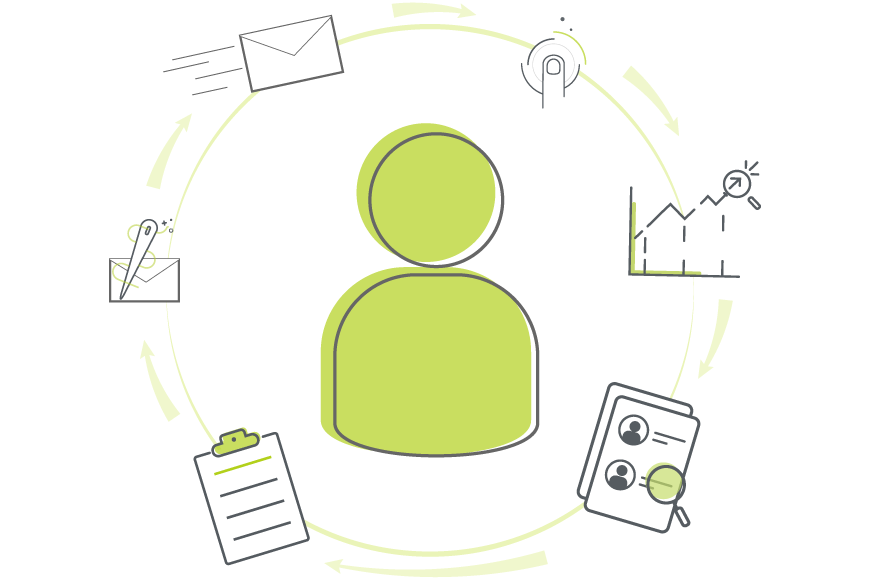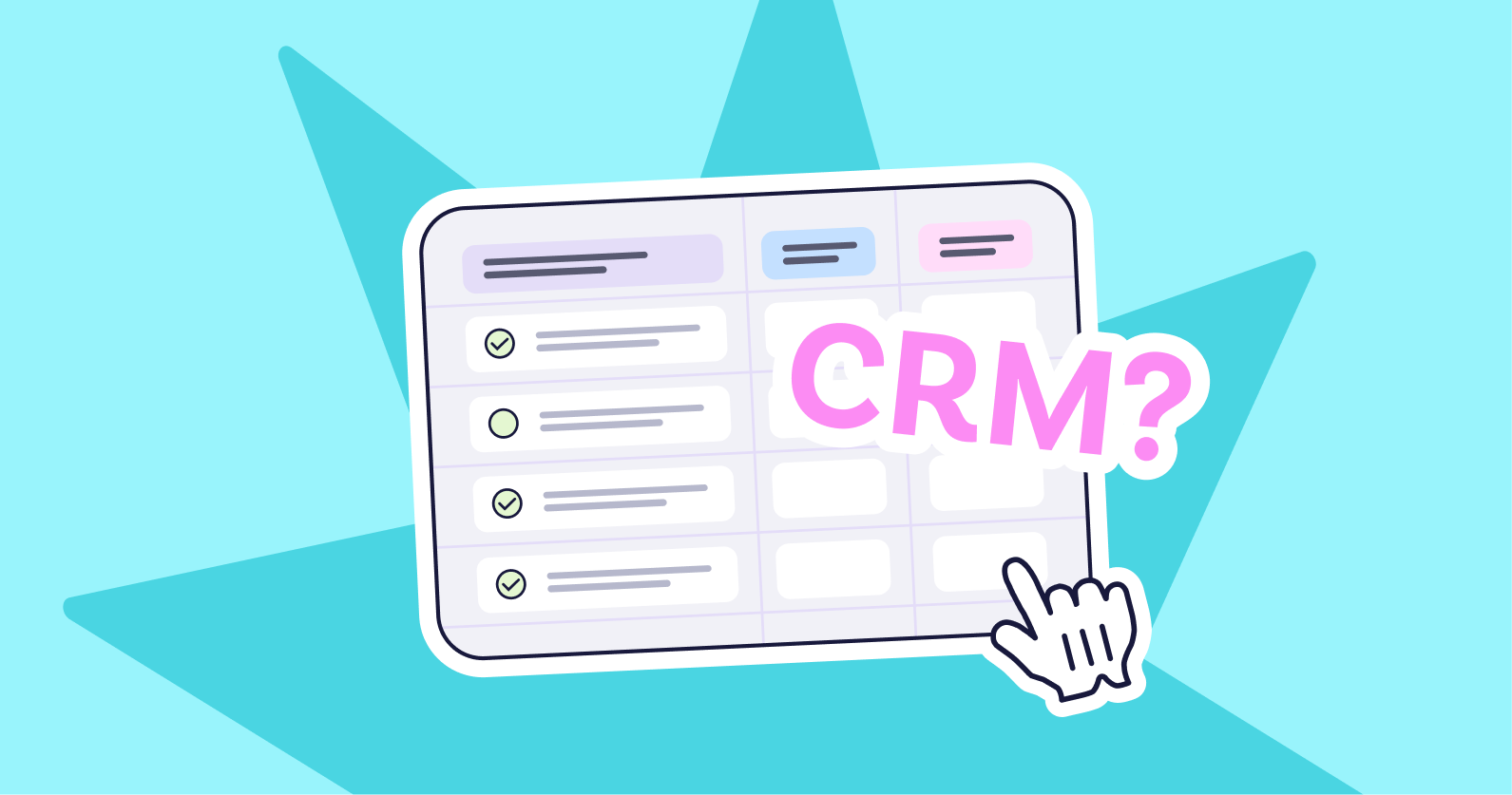The Introduction to CRM
Customer Relationship Management, commonly known as CRM, is a strategy that focuses on managing and analyzing customer interactions and data throughout the customer lifecycle. It helps businesses build and maintain strong relationships with their customers, resulting in improved customer satisfaction, retention, and loyalty.
 Centralized Customer Data: CRM systems allow companies to store and organize customer information in a unified database. This centralization enables easy access to customer data, including contact details, purchase history, preferences, and interactions, empowering organizations with valuable insights.
Centralized Customer Data: CRM systems allow companies to store and organize customer information in a unified database. This centralization enables easy access to customer data, including contact details, purchase history, preferences, and interactions, empowering organizations with valuable insights.
 Enhanced Customer Communication: CRM tools streamline communication channels, facilitating personalized and timely interactions with customers. Whether it’s through emails, phone calls, or social media platforms, businesses can engage with customers effectively, providing tailored solutions and addressing their queries promptly.
Enhanced Customer Communication: CRM tools streamline communication channels, facilitating personalized and timely interactions with customers. Whether it’s through emails, phone calls, or social media platforms, businesses can engage with customers effectively, providing tailored solutions and addressing their queries promptly.

 Data-driven Decision Making: With CRM software, businesses can leverage analytics and reporting features to gain a deeper understanding of customer behavior, preferences, and trends. This data-driven approach enables companies to make informed decisions, develop targeted marketing strategies, and optimize sales processes.
Data-driven Decision Making: With CRM software, businesses can leverage analytics and reporting features to gain a deeper understanding of customer behavior, preferences, and trends. This data-driven approach enables companies to make informed decisions, develop targeted marketing strategies, and optimize sales processes.
 Increased Efficiency and Productivity: CRM systems automate various manual tasks, such as data entry, lead management, and follow-ups. By eliminating repetitive administrative work, businesses can enhance their overall efficiency and productivity, allowing employees to focus on more valuable activities like sales and customer service.
Increased Efficiency and Productivity: CRM systems automate various manual tasks, such as data entry, lead management, and follow-ups. By eliminating repetitive administrative work, businesses can enhance their overall efficiency and productivity, allowing employees to focus on more valuable activities like sales and customer service.
 Improved Collaboration and Coordination: CRM solutions foster collaboration among different departments of an organization. By providing a centralized platform for sharing customer information and communication history, teams can work together seamlessly, ensuring consistent and cohesive interactions with customers.
Improved Collaboration and Coordination: CRM solutions foster collaboration among different departments of an organization. By providing a centralized platform for sharing customer information and communication history, teams can work together seamlessly, ensuring consistent and cohesive interactions with customers.
 Scalability and Customization: CRM tools are designed to adapt to the evolving needs of growing businesses. They offer scalability, allowing companies to easily expand their customer base and operations. Additionally, CRM systems provide customization options, enabling businesses to tailor the software to their specific requirements.
Scalability and Customization: CRM tools are designed to adapt to the evolving needs of growing businesses. They offer scalability, allowing companies to easily expand their customer base and operations. Additionally, CRM systems provide customization options, enabling businesses to tailor the software to their specific requirements.
The Strengths of CRM
 Enhanced Customer Satisfaction: CRM helps businesses deliver personalized experiences by understanding customer needs and preferences. By providing timely and relevant solutions, companies can increase customer satisfaction, leading to long-term loyalty.
Enhanced Customer Satisfaction: CRM helps businesses deliver personalized experiences by understanding customer needs and preferences. By providing timely and relevant solutions, companies can increase customer satisfaction, leading to long-term loyalty.
 Increased Sales and Revenue: CRM enables businesses to effectively manage leads, track opportunities, and convert prospects into paying customers. By optimizing sales processes and nurturing customer relationships, companies can experience a notable boost in sales and revenue.
Increased Sales and Revenue: CRM enables businesses to effectively manage leads, track opportunities, and convert prospects into paying customers. By optimizing sales processes and nurturing customer relationships, companies can experience a notable boost in sales and revenue.
 Improved Marketing Campaigns: CRM systems provide comprehensive insights into customer behavior and buying patterns. This information empowers businesses to develop targeted marketing campaigns, ensuring maximum ROI and better allocation of resources.
Improved Marketing Campaigns: CRM systems provide comprehensive insights into customer behavior and buying patterns. This information empowers businesses to develop targeted marketing campaigns, ensuring maximum ROI and better allocation of resources.

 Streamlined Customer Service: CRM tools enable businesses to deliver exceptional customer service by providing representatives with quick access to customer information. This allows them to resolve queries and issues promptly, resulting in improved customer satisfaction and retention.
Streamlined Customer Service: CRM tools enable businesses to deliver exceptional customer service by providing representatives with quick access to customer information. This allows them to resolve queries and issues promptly, resulting in improved customer satisfaction and retention.
 Effective Lead Management: CRM systems automate lead management processes, from capturing leads to nurturing them until they become customers. This streamlines the sales pipeline and ensures that no leads fall through the cracks, maximizing conversion rates.
Effective Lead Management: CRM systems automate lead management processes, from capturing leads to nurturing them until they become customers. This streamlines the sales pipeline and ensures that no leads fall through the cracks, maximizing conversion rates.
 Improved Cross-selling and Upselling: CRM helps identify cross-selling and upselling opportunities by analyzing customer purchase history and behavior. By offering relevant and personalized recommendations, businesses can drive additional sales and increase average order value.
Improved Cross-selling and Upselling: CRM helps identify cross-selling and upselling opportunities by analyzing customer purchase history and behavior. By offering relevant and personalized recommendations, businesses can drive additional sales and increase average order value.
 Data Security and Privacy: CRM systems employ robust security measures to protect sensitive customer data. With strict access controls and encryption techniques, businesses can ensure data privacy and comply with regulatory requirements.
Data Security and Privacy: CRM systems employ robust security measures to protect sensitive customer data. With strict access controls and encryption techniques, businesses can ensure data privacy and comply with regulatory requirements.
The Weaknesses of CRM
 Implementation Challenges: Implementing CRM systems can be complex and time-consuming, requiring meticulous planning, data migration, and integration with existing software. Without proper implementation, businesses may not fully leverage the benefits of CRM.
Implementation Challenges: Implementing CRM systems can be complex and time-consuming, requiring meticulous planning, data migration, and integration with existing software. Without proper implementation, businesses may not fully leverage the benefits of CRM.
 User Adoption and Training: Getting employees on board and ensuring effective utilization of CRM tools can be a challenge. Businesses must invest in comprehensive training programs to educate employees about using the CRM system and its features efficiently.
User Adoption and Training: Getting employees on board and ensuring effective utilization of CRM tools can be a challenge. Businesses must invest in comprehensive training programs to educate employees about using the CRM system and its features efficiently.

 Cost and Return on Investment: CRM implementation involves financial investments in software licenses, infrastructure, customization, and ongoing maintenance. Businesses need to carefully evaluate the costs and expected return on investment to ensure its viability for their organization.
Cost and Return on Investment: CRM implementation involves financial investments in software licenses, infrastructure, customization, and ongoing maintenance. Businesses need to carefully evaluate the costs and expected return on investment to ensure its viability for their organization.
 Data Accuracy and Completeness: CRM relies heavily on accurate and up-to-date customer data. Businesses must ensure proper data entry procedures, regular updates, and data cleansing activities to maintain high-quality information within the CRM system.
Data Accuracy and Completeness: CRM relies heavily on accurate and up-to-date customer data. Businesses must ensure proper data entry procedures, regular updates, and data cleansing activities to maintain high-quality information within the CRM system.
























